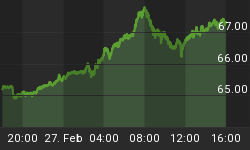Several readers are still wondering why the odds-makers and pollsters got it wrong so badly.
Let's recap.
-
If the odds-makers made money, they got it correct. If they lost money, they got it wrong. That is all there is to it. Odd-makers do not predict results. People betting money do. I have not seen any analysis that suggest the odds-makers lost money. It's possible they did, but if so it was most likely due to a late voting surge.
-
The pollsters did blow it badly. I surmise pollsters looked at historical trends to judge a vote that happens once a century or so. Since the pollsters got it so wrong last time, they over compensated this time. ORB was particularly bad.
-
Surprise surprise. It turns out the online polls were far more accurate. In telephone polls, the pollsters attempt to persuade people to choose. Was there a bit of a hint in that force?
-
Jo Cox. There was a snapback in favor of remain that started before the murder of Jo Cox. However, it's now pretty clear, as I suggested all along, that snapback was exaggerated. When pressured to choose, I suspect people said Remain out of sympathy, then voted how they really felt at the voting booth.
-
Passion and Complacency. It was a given by many that Remain would win. But the passion was with leave. Likely voters for Leave turned out in droves. Voters for remain had less passion than voters for Leave.
-
The weather. Without a doubt weather played a role. But weather and passion go together. Rain likely kept more Remain voters home than Leave voters.
-
Lies. Let's not discount the possibilities of outright lies. In an online survey it's easy to be honest. When talking to a live person, there is a tendency to say what the other person wants to hear. Also, some people just did not want to admit to others personally they took a stance opposite to that of their party. With online polls people do not have such reservations. Online is impersonal.
Points #2, #7, #5, and #4 resonate strongly in this corner (and in that order).
There is going to be some serious soul searching by the pollsters and analysts following yet another pathetic performance by them.
Nearly everyone "presumed" how those undecided voters would vote, despite there being no real historical precedent.
For further discussion please see...
- History Lesson: Don't Count On History
- Word of Thanks to the Person Most Responsible for Brexit: Angela Merkel
- D I V O R C E - Sarkozy Calls for New Treaty, Reiterates "Turkey Has No Place in EU"
















